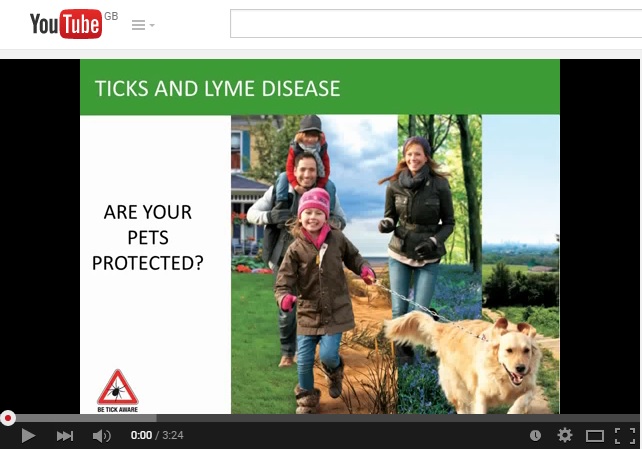With all the recent hot weather and mild winter that we had we are definitely seeing an explosion in tick numbers and this raises concerns regarding the spread of Lymes Disease. Thankfully for dogs at risk there is now a new Lymes Disease Vaccination available.
For those of you who read our blog regularly you will be aware that we have been taking part in The Big Tick Project. Practices across the country are being contacted by Bristol University to take part. For a month we have been collecting and sending ticks found on dogs. These are being DNA profiled and tested for tick borne diseases.
Ticks as we all know are really unpleasant parasites. But the real danger with their blood feeding habits is that they can carry infections such as the bacteria Borrelia which causes Lymes Disease.
Lymes disease typically causes a high fever and joint pain and can affect our pets as well as people. In humans you typically see a circular rash around a tick bite often called a 'bulls eye lesion'
In our dogs especially it can be harder to initially diagnose as often the rash is not present or missed in our really hairy friends! Not helped by the fact that a dog can carry the disease for up to a year before showing clinical symptoms. Typically they have a waxing and waning lameness in one or more limb and a temperature that comes and goes. Thankfully compared to the difficulties in treating people most dogs respond well to a lengthy course of antibiotics and make a full recovery.
Have a look at this short video below for more information.
As yet in Surrey there have only been tiny pockets of infection and it is certainly not endemic around here, but the New Forest, Wales and Scotland are all known to be high risk areas. We are hoping at the end of this year when The Big Tick Project has completed that we will have a much more accurate map to share with you.
In the meantime if you are visiting a known risk area there is now a new Lymes Disease Vaccination available which we now have in stock. For full information have a look at the bottom of the page where you can find a leaflet and a question and answers page on Lymes disease that you can download. As always if you are worried that your pet may be at risk then please do contact the surgery - we're always happy to help!





